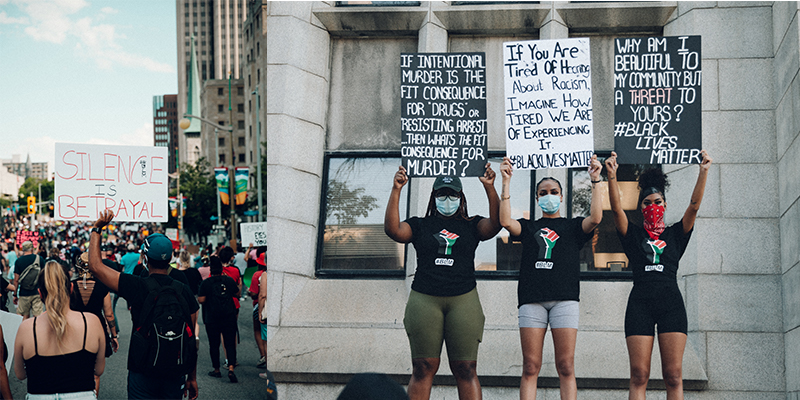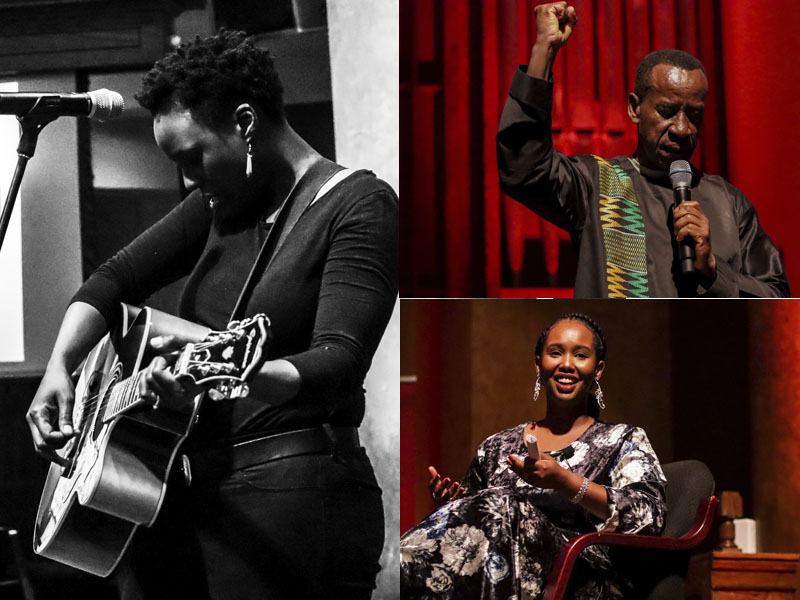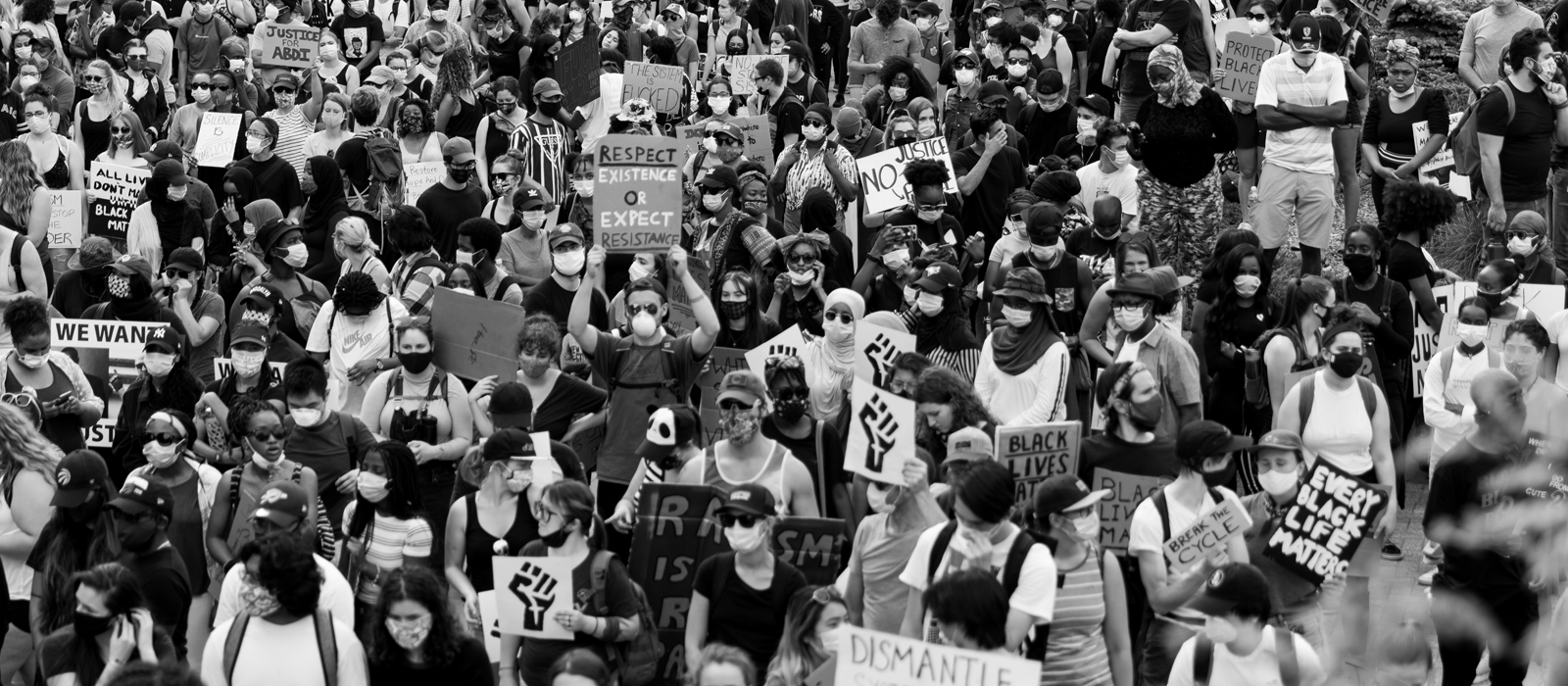Initiatives Addressing Anti-Black Racism
The School of Social Work has long been committed to challenging racism and in recent years has taken a number of additional measures to address anti-Black racism generally and its manifestations at the School. This has included developing resources for instructors to use in their classes to address issues of anti-Black racism and anti-racism; changing our admissions processes so that we can ensure greater equity for Black applicants; developing new scholarships for Black, Indigenous and Racialized students; changing the visual appearance of the School with murals created by racialized artists and diversifying our faculty.
In the wake of the widely reported deaths of a number of Black citizens at the hands of police this spring, the School of Social Work (SSW) put out the following statement of its commitment to challenging anti-Black racism:

Photos by Fitch from Lenz Studio.
The recent acts of anti-Black racism and discrimination that have occurred in Canada and the United States are a disturbing reminder of the injustices that still exist in our world. From devastating incidents such as the murders of George Floyd, Abdirahman Abdi, Breonna Taylor, and countless others, it is evident that racial inequities and racial injustice are still prevalent in our society.
Racism is an active system in Canada. It is important that we recognize and challenge the ways anti-Black racism is present in our lives. As a School, we have a responsibility not only to condemn anti-Black racism but also to take action to support inclusion for all.
We understand how witnessing these atrocious acts has caused much pain, anger and distress for Black students, faculty and staff. We grieve for families who have lost loved ones to racism and police brutality. We stand in solidarity with Black, Indigenous and Racialized communities, and we demand justice.
At the School of Social Work, this starts with recognizing/acknowledging the structural inequalities in society that result in differential access to, and differential distribution, of power (economic, political, social and cultural) for groups of people. We have a role to play in dismantling anti-Black racism. As social workers, this should be reflected in education, policies and practices.
In the fight against injustice and white supremacy, our aim at the School will continue to focus on critically reviewing our curricula from a race equity lens. This has always been a value at the SSW, but now more than ever, we must ensure that our learning spaces exemplify anti-racism. As a School, we have made some initial commitments that include:

Immediate Actions:
• Enrich curriculum readings with more materials addressing anti-Black racism and anti-racism
• Offer a section of the Racialization and Social Work course this fall in addition to the spring offering
• Organize a zoom town hall meeting this fall with a guest speaker to discuss issues of anti-Black racism
Ongoing Efforts:
- The BSW and Graduate committees will review the curriculum to consider offering the Racialization and Social Work course as a required course that will happen earlier in the program. The committee may also come up with additional curriculum-based changes to more effectively address anti-racism in all of the programs;
- Continue supporting the Black History Month event;
- Develop and sustain more spaces for discussions about anti-racism and anti-Black racism;
- Consider implementing a mentorship program for prospective racialized MSW students to be co-led by students and faculty so as to foster inclusion and equity in higher education.

Anti-racism requires collective action. We stand in solidarity with Black, Indigenous and Racialized communities. As a School of Social Work, we must join together and use our spaces of learning as ways to combat systems of oppression. While this work is underway, we still have much more to learn and do.
For students, who experience grief, trauma and/or stress resulting from the most recent anti-Black racial violence, please access the supports below:
- OASW hosted a Zoom group to support “young Black social workers and students” on June 9th.
- Equity and Inclusive Communities- Senior Advisor on Human Rights and Equity, Ikram Jama Ikram.Jama@carleton.ca.
- Health and Counselling Services- 613-520-6674. Hours: 8:30 a.m. and 4:30 p.m. Monday to Friday.
For additional support resources, by province, please visit https://carleton.ca/wellness/provincial-support-resources/
